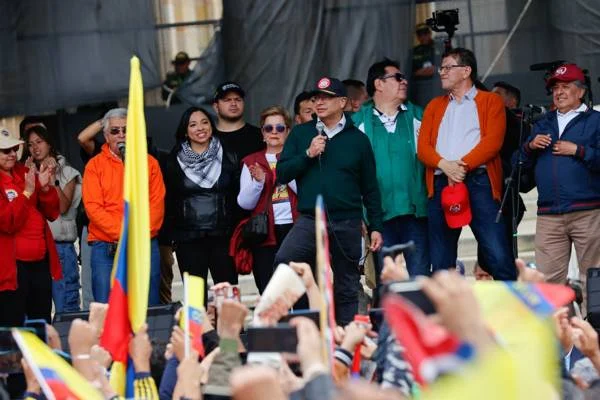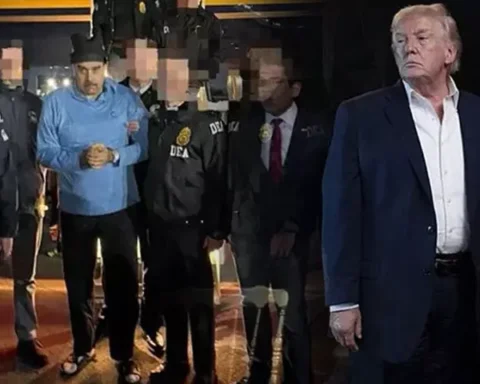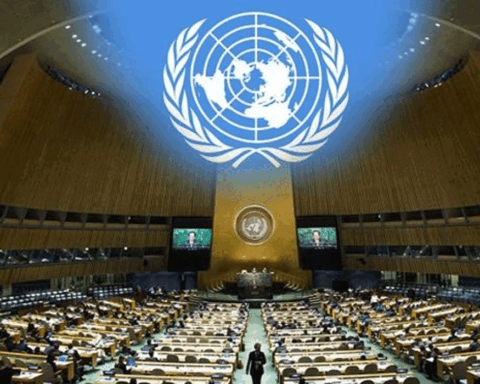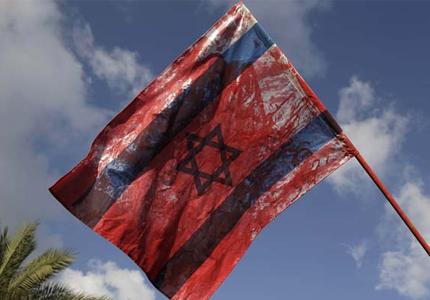Progressive International
Convened by Colombia and South Africa as co-chairs of The Hague Group, the Emergency Ministerial Conference marks the boldest stand yet against the Gaza genocide and the collapse of the multilateral order.
This week, more than 25 states from around the world will gather in Bogotá, Colombia, for the “Emergency Conference” to halt the Gaza genocide: the most ambitious multilateral response since Israel began its campaign of devastation two years ago.
“The Bogotá conference will go down as the moment in history that states finally stood up to do the right thing,” said UN Special Rapporteur Francesca Albanese, calling the formation of The Hague Group the “most significant political development of the last 20 months.”
Jointly convened by Colombia and South Africa, The Hague Group’s Co-Chairs, the conference brings together states far beyond the boundaries of the Group — from Algeria to Brazil, China to Spain, Indonesia to Qatar — “to move from condemnation to collective action,” in the words of Colombian President Gustavo Petro.
“The Palestinian genocide threatens our entire multilateral system,” said Petro’s Vice Foreign Minister, Mauricio Jaramillo Jassir, ahead of the conference.
That threat only grew in urgency this week, when the Trump administration imposed sanctions on UN Special Rapporteur Francesca Albanese, targeting her for what US Secretary of State Marco Rubio called her “illegitimate and shameful efforts” to promote International Criminal Court action against US American and Israeli officials.
But rather than cowing the international community, the sanctions have only steeled resolve. Amnesty International’s Secretary General, Agnès Callamard, condemned the move as “a shameless and transparent attack on the fundamental principles of international justice.”
Refusing to retreat, Albanese is now headed to Bogotá. “I am honored to travel to Bogotá in support of the Hague Group and its pursuit of justice and peace — grounded in rights and freedoms — that an increasing number of countries are finally embracing after decades of empty political rhetoric,” she said. She will present expert testimony to the assembled states, joining other UN Special Rapporteurs in briefings that will inform coordinated legal and diplomatic measures.
President Petro, for his part, has already taken a stand for Albanese — despite the threats by the US government. “All my solidarity with Francesca Albanese. The multilateral system of states cannot be destroyed,” he said on Wednesday.
For Petro, the conference represents a critical juncture for international law itself. “The choice before us is stark and unforgiving,” he wrote in the Guardian this week. “We can either stand firm in defence of the legal principles that seek to prevent war and conflict, or watch helplessly as the international system collapses under the weight of unchecked power politics.”
For South Africa, too, the stakes are existential for international law. Roland Lamola, South Africa’s minister of international relations and cooperation, said that the formation of The Hague Group marked “a turning point in the global response to exceptionalism and the broader erosion of international law.” That same spirit, said Lamola, “will animate this Bogota conference, where the assembled states will send a clear message: no nation is above the law, and no crime will go unanswered.”
Members have already taken concrete steps over the past 20 months. South Africa brought a landmark case against Israel at the International Court of Justice for alleged violations of the Genocide Convention. Several states later joined South Africa’s case, including Bolivia, Colombia and Namibia. Namibia and Malaysia blocked ships carrying arms to Israel from docking at their ports, while Colombia severed diplomatic ties with the Israeli government and suspended coal exports.
The conference thus calls on states to make good on their obligations under international law — and fast. Last September, the United Nations General Assembly voted to take action on “Israel’s policies and practices in the Occupied Palestinian Territory” with a 12-month deadline to deliver concrete obligations — investigations, prosecutions, sanctions, asset freezes, and cessation of imports and arms. The clock is now ticking.
“While we may face threats of retaliation when we stand up for international law — as South Africa discovered the United States retaliated for its case at the International Court of Justice — the consequences of abdicating our responsibilities will be dire,” Petro warned this week. “If we fail to act now, we not only betray the Palestinian people; we become complicit in the atrocities committed by Netanyahu’s government.”
Over the course of two days in the Palacio San Carlos in downtown Bogotá, delegates will meet with renowned international experts, UN officials, and Palestinian organizations — before the closed-door session to deliberate concrete measures. As Vice Minister Jaramillo Jassir explained, “the assembled states will not only reaffirm our commitment to resist the genocide, but devise a series of specific measures to move from words to collective action.”
The conference will culminate on 16 July with a mass mobilization in support of The Hague Group in Plaza Bolívar.
In this historic plaza — named for Simón Bolívar, the liberator who once dreamed of a united Latin America free from imperial domination — a global chorus will call for the end of the era of impunity. “For the billions of people in the Global South who rely on international law for protection, the stakes could not be higher,” Petro has warned. “The Palestinian people deserve justice. The moment demands courage.”
Whether you find yourself in Colombia or continents away, the call from Plaza Bolívar will echo around the world. Join us there — if not in body, then in solidarity — as the forces of justice unite to defend humanity, before it is too late.
Source: https://progressive.international/wire/2025-07-12-pi-briefing-no-25-nos-vemos-en-bogot/en







this article is very useful, thank you for making a good article